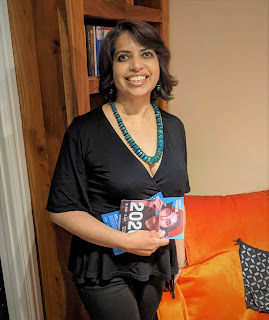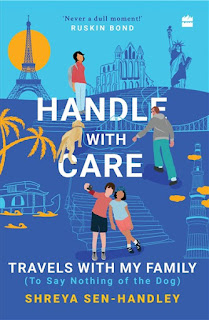Congratulations to UoL PhD English and Creative Writing graduate, Tim Hannigan, whose book The Granite Kingdom has recently been published by Head of Zeus!
Tim Hannigan was born and brought up in the far west of Cornwall. After starting his working life as a chef, he eventually made it to the University of Gloucestershire to study Journalism, after which he moved to Indonesia where he began his writing career as a travel journalist. His first book, Murder in the Hindu Kush, was published in 2011, and he subsequently wrote several books on Indonesian history. In 2016 he started work on a critical-creative PhD at the University of Leicester, supported by the Midlands4Cities DTP. This project produced his book The Travel Writing Tribe, published by Hurst in 2021. He lives in the west of Ireland and combines his writing with part-time teaching roles at the Technological University of the Shannon and the University of Hull. His website is here.
About The Granite Kingdom
From Daphne du Maurier to Doc Martin, and from the romantic melodrama of Poldark to gritty TV depictions of the modern fishing industry, Cornwall is densely laden with images, projections and tropes. But how does all this intersect with the real place, its landscapes, histories, communities and sense of identity? In The Granite Kingdom, Tim Hannigan sets out on a meandering, 300-mile journey to find out, travelling on foot from the banks of the River Tamar to his childhood home near Land’s End.
Combining travel writing, memoir, history and literary criticism, the book explores the varied landscapes of Britain’s westernmost region and grapples with the complex idea of Cornwall itself – a cosy English seaside destination for some, a fiercely independent Celtic nation for others and one of Britain’s most impoverished post-industrial regions for others still. It considers the way literary narratives from without have sometimes informed identities from within – including the author’s own – and asks awkward questions about what it means to be “Cornish” in the twenty-first century.
Below, you can read an excerpt from The Granite Kingdom.
From The Granite Kingdom, by Tim Hannigan
Chapter One: Bordering
If you stand at the threshold of Number 2 Cyprus Well, you have a choice. It is the middle cottage of three in a little terrace facing a bank of sycamore saplings on a steep lane called Ridgegrove Hill. Above the single ground-floor window, a plaque records that ‘Charles Causley, Poet’ lived here from 1952 to 2003. They might have added the word ‘Cornish’ to the description, for that is the adjective most commonly associated with Causley. And indeed, he lived in Cornwall – right here in Launceston, in fact – not just for fifty-one years, but for almost his whole life.
But if you stand at the threshold of Cyprus Well and turn left, you can see Devon.
It shows beyond the point where the lane bends downhill: a gathering groundswell of trees and pasture. From the doorstep of Causley’s cottage, it seems natural to turn that way, to go with the flow. At the bottom of Ridgegrove Hill you’ll meet the little River Kensey. Within a mile, the Kensey will carry you to the Tamar, and the Tamar will bear you away south, between dark woods to the grey docks and end-of-terrace pubs of Plymouth, with the busy waters of the English Channel beyond. But if it’s Cornwall that you want, then you have to turn against gravity, against nature, pull steeply up Ridgegrove Hill then on up Angel Hill to pass, breathless, beneath the fortified arch on Southgate Street. And if it’s a decent prospect to the westward that you’re after, you’ll need to cross to the other side of Launceston and climb the motte of the castle.
On a midsummer morning, I stood on the pavement outside Number 2 Cyprus Well. It was early, and up the hill Launceston gave off the faint hum of a small town readying itself for the working day. To the east, the valleys were liquid with yellow mist. A few intersecting ridges rose above the flood, trees and hedges in dark profile. But it wasn’t clear to whom they belonged. I glanced left and right, fiddled with the straps of my backpack, looked at the map. Then I turned downhill, into the mist ....











